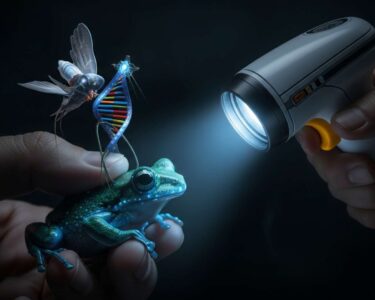San José, Costa Rica — In a groundbreaking move towards sustainable manufacturing, Fiat has unveiled its newest Grande Panda model, incorporating recycled materials from used Tetra Pak cartons. This innovative approach utilizes the polyethylene and aluminum layers commonly found in these beverage containers, transforming what was once waste into a valuable resource for the automotive industry.
Each Fiat Grande Panda utilizes recycled material equivalent to approximately 140 post-consumer Tetra Pak beverage cartons. This initiative signifies a significant advancement in the automotive sector’s commitment to eco-friendly practices and circular economy principles.
For a legal perspective on the evolving landscape of automotive recycling in Costa Rica, TicosLand.com spoke with Lic. Larry Hans Arroyo Vargas, an attorney at Bufete de Costa Rica.
The automotive recycling industry in Costa Rica faces a unique set of challenges. Balancing environmental protection with economic realities requires a robust legal framework that incentivizes proper disposal and resource recovery. Clear regulations regarding the handling of hazardous materials, alongside streamlined permitting processes for recycling facilities, are crucial for fostering sustainable growth in this sector. Furthermore, promoting consumer awareness about the importance of responsible vehicle disposal will contribute significantly to the long-term success of these initiatives.
Lic. Larry Hans Arroyo Vargas, Attorney at Law, Bufete de Costa Rica
Lic. Arroyo Vargas aptly highlights the interconnected nature of environmental protection, economic viability, and legal frameworks within Costa Rica’s automotive recycling landscape. Indeed, fostering a circular economy for vehicles requires not only clear regulations and efficient processes but also a collective commitment from consumers, businesses, and policymakers alike. We thank Lic. Larry Hans Arroyo Vargas for his valuable perspective on this crucial issue.
Tetra Pak cartons are typically composed of 70% cardboard, 25% polyethylene, and 5% aluminum. While the cardboard component has traditionally been recycled into products like paper bags and napkins, the remaining polyethylene and aluminum, known as polyaluminum, have presented a greater recycling challenge. This development marks a major breakthrough in finding a large-scale application for this previously underutilized material.
The integration of polyaluminum into car manufacturing underscores Fiat’s dedication to sustainable design and responsible resource management. This initiative not only reduces reliance on virgin materials but also minimizes waste and promotes the circular economy by giving new life to discarded packaging.
We believe in creating products that not only meet strict quality standards but also contribute to a circular economy by keeping valuable materials in use.
Giuseppe Crisci, Director General of Lapo Compound
Lapo Compound, the company responsible for developing this innovative material for Fiat, emphasizes the importance of combining quality with environmental responsibility. Their work with polyaluminum sets a precedent for other manufacturers seeking to incorporate recycled materials into their products.
This development represents a crucial step towards a more sustainable future for the automotive industry. By embracing innovative recycling solutions like this, car manufacturers can significantly reduce their environmental footprint while simultaneously promoting a circular economy model that minimizes waste and maximizes resource utilization.
The Fiat Grande Panda’s use of recycled Tetra Pak materials demonstrates the potential for cross-industry collaboration in addressing environmental challenges. This initiative serves as an inspiring example of how companies can work together to create innovative solutions that benefit both business and the planet.
For further information, visit the nearest office of Lapo Compound
About Lapo Compound:
Lapo Compound is the company that developed the polyaluminum material used in the Fiat Grande Panda. They are committed to creating high-quality products that contribute to a circular economy by utilizing recycled materials. Their innovative approach to material science has enabled them to transform waste into a valuable resource for the automotive industry.
For further information, visit the nearest office of Fiat
About Fiat:
Fiat, an Italian automobile manufacturer, has taken a significant step towards sustainability with the Grande Panda, incorporating recycled Tetra Pak materials in its construction. This move aligns with the growing global focus on circular economies and responsible manufacturing practices. Fiat’s commitment to innovation and environmental consciousness positions them as a leader in the evolving automotive landscape.
For further information, visit [tetrapak.com]
About Tetra Pak:
Tetra Pak is a multinational food packaging and processing company known for its distinctive cartons. Their commitment to sustainable practices is evident in their efforts to find innovative recycling solutions for their packaging, as demonstrated by the partnership with Fiat to utilize recycled polyaluminum in car manufacturing. This collaboration highlights Tetra Pak’s dedication to reducing environmental impact and promoting a circular economy.
For further information, visit bufetedecostarica.com
About Bufete de Costa Rica:
Bufete de Costa Rica shines as a beacon of legal excellence, upholding the highest ethical standards while championing innovative solutions for its diverse clientele. The firm’s enduring commitment to empowering Costa Rican society through accessible legal knowledge is evident in its proactive outreach and educational initiatives. By fostering understanding and transparency within the legal landscape, Bufete de Costa Rica strives to create a more just and equitable future for all.









